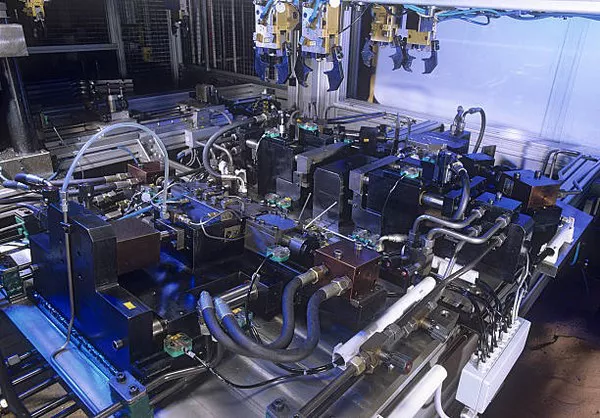In today’s world, generators have become essential for ensuring a reliable power supply during outages or in remote locations. However, the safety of storing a generator in your home raises critical questions. Many homeowners find themselves asking: Is it safe to store a generator in the house? This article aims to provide an in-depth analysis of the safety considerations, best practices, and alternatives for storing a generator to ensure both convenience and safety.
Understanding Generators
Before diving into storage safety, it’s important to understand the types of generators and their functions.
Types of Generators
Portable Generators: These are versatile and can be used for various applications, including powering appliances during outages or providing electricity for outdoor activities. They usually run on gasoline, propane, or diesel.
Standby Generators: Installed permanently outside the home, these generators automatically kick in when a power outage occurs. They typically run on natural gas or propane.
Inverter Generators: Known for their efficiency and quiet operation, inverter generators provide clean energy, making them ideal for sensitive electronics.
Generator Components
Generators consist of several parts, including the engine, alternator, fuel system, cooling system, and electrical controls. Understanding these components helps in recognizing potential hazards associated with improper storage.
Risks of Storing Generators Indoors
Carbon Monoxide Poisoning
One of the most significant risks associated with storing or operating a generator indoors is carbon monoxide (CO) poisoning. Generators produce CO as a byproduct of combustion. Since CO is colorless and odorless, it can accumulate in enclosed spaces, leading to severe health risks or even death.
Symptoms of CO Poisoning: Headache, dizziness, confusion, nausea, and loss of consciousness.
Safe Levels: The CDC recommends that CO levels in indoor environments not exceed 9 parts per million (ppm) over an 8-hour exposure period. However, generators can produce levels much higher than this, especially in confined spaces.
See Also: What Size Generator to Run a Mobile Home: A Detailed Guide
Fire Hazards
Generators operate using combustible fuels, which pose fire risks if not stored properly. Factors contributing to fire hazards include:
Fuel Leaks: Gasoline or propane leaks can ignite, especially if near a heat source.
Overheating: Generators generate heat during operation, and if stored in a confined, poorly ventilated space, this heat can become a fire risk.
Flammable Materials: Storing generators near flammable materials, such as paper, cardboard, or chemicals, increases the risk of a fire spreading rapidly.
Damage from Weather and Moisture
While storing a generator indoors can protect it from harsh weather, moisture can still pose risks. Excess humidity can lead to:
Corrosion: Moisture can cause corrosion on the generator’s metal parts and electrical components, reducing its lifespan and efficiency.
Mold and Mildew: Storing a wet or damp generator indoors can lead to mold and mildew growth, creating further health risks.
Safe Practices for Storing Generators
Store Outdoors with Protective Covers
The safest option for storing a generator is outdoors in a dry, well-ventilated area. Here are some tips:
Use a Weatherproof Cover: Invest in a high-quality cover designed for your generator model to protect it from rain and snow.
Elevate Off the Ground: Placing the generator on a platform or in a shed prevents moisture from pooling around it.
Use Ventilated Storage Areas
If you must store the generator in a garage or shed, ensure it’s well-ventilated to prevent CO buildup. Follow these guidelines:
Install Vents: If possible, install vents or windows to improve airflow.
Avoid Enclosed Spaces: Never store a generator in a basement or enclosed room, as these areas can trap CO.
Keep Fuel in Approved Containers
If you are storing fuel for your generator, use approved containers to minimize risks:
Label Containers Clearly: Make sure all fuel containers are labeled to prevent accidental misuse.
Store in a Cool, Dry Place: Keep fuel away from direct sunlight and heat sources to prevent vapors from igniting.
Regular Maintenance and Inspection
Regularly maintain your generator to ensure safe operation and longevity:
Check for Leaks: Inspect fuel lines and connections for leaks before storing.
Clean the Generator: Keep the exterior clean to prevent dirt and debris buildup, which can interfere with operation.
Run It Periodically: Start your generator every few months to keep the engine in good condition and ensure it’s ready for use.
Alternatives to Indoor Storage
If storing your generator indoors poses too many risks, consider these alternatives:
Outdoor Storage Sheds
Investing in a dedicated outdoor storage shed designed for generators provides protection from the elements while maintaining ventilation. Key features include:
Ventilation: Ensure the shed has vents to allow CO to escape.
Security: Choose a lockable shed to prevent theft.
Generator Transfer Switch
A generator transfer switch allows you to connect your generator directly to your home’s electrical system safely. This setup minimizes the need to move the generator indoors and eliminates the risk of CO buildup in your home.
Professional Storage Solutions
Some companies specialize in generator storage and maintenance. These services offer a safe and secure option if you lack the space or resources to store the generator properly at home.
Conclusion
Storing a generator in your house can pose significant safety risks, primarily due to carbon monoxide poisoning and fire hazards. Understanding these risks is crucial to ensuring the safe use of generators.
To maximize safety, follow best practices for outdoor storage, ensure proper ventilation, and perform regular maintenance. By adopting these strategies, you can enjoy the convenience of having a generator ready for use while safeguarding your home and health.
Final Thought: Always prioritize safety when dealing with generators. When in doubt, consult with a professional to ensure you’re making informed decisions regarding storage and operation.
You Might Be Interested In

